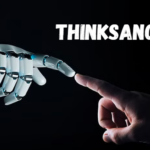Introduction
Communication, or “översägt” in Swedish, is an essential aspect of human existence that has shaped societies, cultures, and individuals throughout history. From primitive cave drawings to sophisticated digital communication, the evolution of communication has been remarkable.
This article delves deep into the concept of “översägt,” exploring its historical significance, modern-day relevance, and future potential. By providing unique insights and analyses, this article aims to offer a comprehensive understanding of communication and its pivotal role in human life.
The Evolution of Communication
Early Forms of Communication
The earliest forms of communication were non-verbal. Primitive humans used gestures, facial expressions, and body language to convey messages. These methods, though rudimentary, were crucial for survival, helping early humans coordinate during hunts and warn each other of dangers.
The Birth of Language
Language, one of humanity’s most significant inventions, revolutionized communication. It allowed for more precise and complex exchanges of information. Early languages were likely a combination of sounds and gestures, gradually evolving into spoken words and structured sentences. The development of language enabled the transmission of knowledge, culture, and traditions across generations.
Written Communication
The invention of writing marked another monumental leap in the history of communication. Ancient civilizations like the Sumerians, Egyptians, and Chinese developed writing systems that allowed them to record information, create literature, and establish legal systems. Written communication preserved knowledge and made it possible to share ideas across time and space.
The Printing Revolution
The invention of the printing press by Johannes Gutenberg in the 15th century democratized access to written information. Books, previously the preserve of the elite, became accessible to a broader audience. This revolution facilitated the spread of ideas, spurred the Renaissance, and laid the groundwork for the modern knowledge economy.
Electronic and Digital Communication
The 19th and 20th centuries saw the advent of electronic communication. The telegraph, telephone, radio, and television transformed how people exchanged information, shrinking the world into a global village. The digital revolution of the late 20th century, characterized by the internet and mobile technology, further accelerated communication, enabling instantaneous global connectivity.
The Importance of Communication in Modern Society
Personal Relationships
Effective communication is the cornerstone of healthy personal relationships. It enables individuals to express their thoughts, feelings, and needs clearly. Good communication fosters understanding, empathy, and trust, which are essential for strong interpersonal bonds.
Professional Success
In the professional realm, communication skills are paramount. Whether it’s verbal communication during meetings, written communication in emails and reports, or non-verbal cues during presentations, the ability to convey ideas clearly and persuasively is crucial for career advancement. Effective communication enhances teamwork, problem-solving, and leadership.
Education and Learning
Communication is fundamental to education. It facilitates the exchange of knowledge between teachers and students. In a classroom setting, clear and engaging communication helps students understand complex concepts and fosters a conducive learning environment. With the rise of online education, effective digital communication has become increasingly important.
Social and Cultural Development
Communication plays a vital role in the social and cultural development of societies. It enables the sharing of cultural practices, traditions, and values. Media, literature, and art are all forms of communication that reflect and shape societal norms. Through communication, societies can address social issues, promote inclusivity, and drive progress.
Political and Civic Engagement
Effective communication is essential for political and civic engagement. It allows citizens to stay informed about political developments, express their opinions, and participate in democratic processes. Transparent communication from governments and institutions builds trust and accountability.
The Psychology of Communication
The Role of Perception
Perception plays a crucial role in communication. How individuals perceive messages is influenced by their backgrounds, experiences, and biases. Understanding perception is key to effective communication, as it helps in crafting messages that resonate with diverse audiences.
Non-Verbal Communication
Non-verbal communication, including body language, facial expressions, and tone of voice, often conveys more than words. It can reinforce or contradict verbal messages. Being aware of non-verbal cues enhances communication effectiveness, especially in personal interactions.
Emotional Intelligence
Emotional intelligence, the ability to understand and manage one’s emotions and those of others, is integral to effective communication. It helps in navigating difficult conversations, resolving conflicts, and building strong relationships.
Barriers to Communication
Several barriers can hinder effective communication, including language differences, cultural misunderstandings, and technological challenges. Identifying and addressing these barriers is crucial for successful communication.
The Future of Communication
Technological Advancements
Emerging technologies are poised to further revolutionize communication. Artificial intelligence (AI), virtual reality (VR), and augmented reality (AR) are creating new ways for people to interact. AI-powered communication tools can translate languages in real-time, provide personalized communication experiences, and even simulate human conversation.
The Impact of Social Media
Social media platforms have transformed how people communicate, offering instant connectivity and a global audience. However, they also present challenges such as misinformation, cyberbullying, and privacy concerns. Understanding the dynamics of social media communication is essential for leveraging its benefits while mitigating its risks.
Ethical Considerations
As communication technologies evolve, ethical considerations become increasingly important. Issues such as data privacy, digital consent, and the ethical use of AI in communication need to be addressed to ensure that technological advancements benefit society without compromising individual rights.
The Role of Communication in a Globalized World
In an increasingly globalized world, effective communication across cultures is vital. It fosters international collaboration, enhances cross-cultural understanding, and drives global progress. Intercultural communication skills are becoming essential in both personal and professional contexts.
Conclusion
Communication, or “översägt,” is a dynamic and multifaceted aspect of human life that has evolved significantly over time. From early non-verbal signals to sophisticated digital interactions, the journey of communication reflects the progress of human civilization. In today’s interconnected world, effective communication is more important than ever. By understanding its historical context, current relevance, and future potential, we can harness the power of communication to foster personal growth, professional success, and societal development.
FAQs
What is the meaning of “översägt”?
“Översägt” is the Swedish word for communication. It encompasses the various ways humans exchange information, ideas, and emotions.
Why is communication important in personal relationships?
Communication is crucial in personal relationships as it fosters understanding, empathy, and trust. It allows individuals to express their thoughts and feelings, resolve conflicts, and build strong bonds.
How has technology impacted communication?
Technology has revolutionized communication by making it faster, more accessible, and more diverse. Innovations like the internet, mobile devices, and social media have transformed how people interact, share information, and build relationships.
What are some common barriers to effective communication?
Common barriers include language differences, cultural misunderstandings, technological challenges, and personal biases. Addressing these barriers is essential for successful communication.
What is the future of communication?
The future of communication is likely to be shaped by advancements in AI, VR, AR, and other emerging technologies. These innovations will create new ways for people to interact and share information, offering both opportunities and challenges. Ethical considerations and intercultural communication skills will be crucial in navigating this evolving landscape.
By providing a comprehensive and insightful exploration of “översägt,” this article aims to offer a deeper understanding of the essential role communication plays in our lives. From its historical roots to its future potential, communication remains a cornerstone of human progress and connection.



